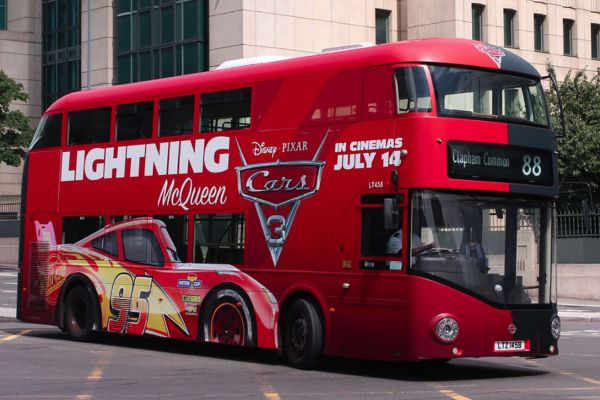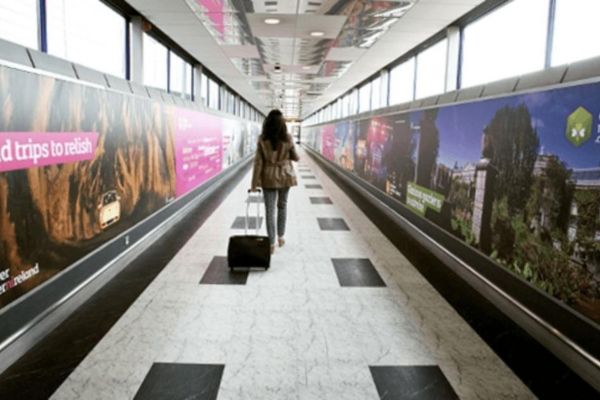- Blogs
- Influencer marketing
- Contact Us
- About Us
- News & Media
- FAQs
Riding into the Future: How Transit Advertising is Evolving
Explore how transit advertising agencies are using digital signage, interactivity, and data to transform the way brands connect with captive audiences on buses, trains, and more.
vipin goswami 🕑 03/28/24 65

Public transportation offers a captive audience � millions of commuters with time to spare while on their daily journeys. This has long made transit advertising a mainstay for brands looking to reach a broad and diverse demographic. But as technology and consumer behavior continue to evolve, transit advertising agencies are innovating to stay ahead of the curve.
The future of transit advertising is all about creating a more engaging and interactive experience for passengers. Let's explore the exciting trends that are shaping the landscape:
The Rise of Digital Signage
Static posters plastered inside buses and train cars are becoming a thing of the past. Transit advertising agencies are embracing digital signage, offering a dynamic platform for advertisers. These high-definition screens can showcase eye-catching visuals, short video clips, and even real-time information.
Digital signage allows for greater flexibility. Transit advertising agencies can create targeted campaigns that change based on the time of day, passenger demographics, or even location within the transit system. Imagine an advertisement for a local coffee shop popping up on screens near major office buildings during the morning rush hour.
Interactive Experiences for Passengers
The future of transit advertising goes beyond just displaying content. Imagine a bus stop with an interactive screen where passengers can play a game, participate in a poll, or even win instant discounts. Transit advertising agencies are exploring ways to make the commute more interactive, fostering brand engagement in the process.
QR codes are another powerful tool for interactivity. Passengers can scan a code on an ad to access exclusive content, such as a website with detailed product information, a downloadable coupon, or a social media promotion. This allows brands to extend the advertising experience beyond the physical space and create a deeper connection with potential customers.
Data-Driven Targeting and Measurement
Transit advertising agencies are increasingly leveraging data to optimize campaigns. By analyzing ridership patterns and demographics, they can target specific audiences with laser precision. Additionally, digital signage allows for real-time campaign tracking, providing valuable insights into ad performance. This data-driven approach ensures that transit advertising campaigns are effective and deliver a measurable return on investment (ROI) for advertisers.
Sustainability in Transit Advertising
Consumers are becoming more environmentally conscious, and transit advertising agencies are taking note. Sustainable materials are being used for physical ads, and digital signage reduces paper waste associated with traditional static posters. Additionally, transit advertising itself can promote the benefits of public transportation, encouraging a shift towards a more eco-friendly way of commuting.
The Integration of On-Demand Services
Ride-sharing services like Uber and Lyft are becoming increasingly popular. Transit advertising agencies are recognizing this trend and exploring ways to integrate advertising into these platforms. Imagine targeted ads displayed on passengers' phones during their rides, offering relevant promotions or highlighting nearby businesses.
Looking Ahead: A Brighter Future for Transit Advertising
The future of transit advertising is brimming with possibilities. By embracing new technologies, focusing on interactivity, and utilizing data-driven strategies, transit advertising agencies can create a win-win situation for advertisers and passengers alike. Advertisers will reach a captive audience in a more engaging way, while passengers will be presented with relevant and interactive content during their commutes. As transit advertising continues to evolve, it will remain a powerful tool for brands to connect with consumers and drive brand awareness.



